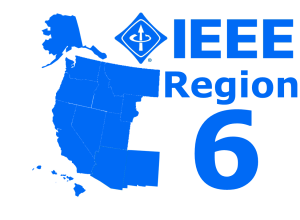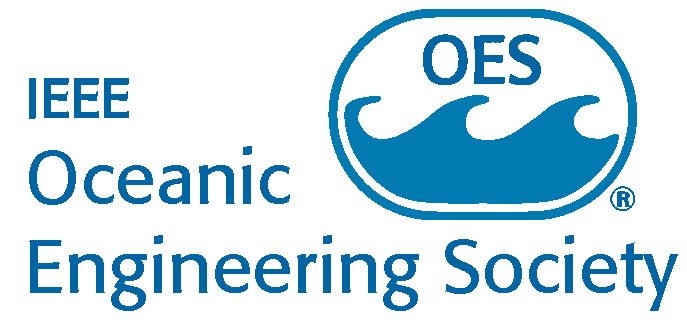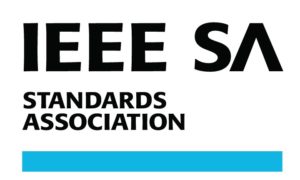Sustainability Forum – Sustainable Aviation
Date: April 23, 2022 7:00 AM – 4:40 PM PDT (1400-2340 GMT)
Agenda – subject to change
Download this page as a PDF
Keynote Speakers
Dr. Stefan Breunig – Head of Strategy, Rolls-Royce Electrical
Jean Louis Debauche – Founder and CEO of JLD Consultant, Co-Founder of ZE-Glue Limited
Dr. Hao Huang, Retired Technology Chief – GE Aviation Electrical Power
Zia Abdullah, National Renewable Energy Laboratory
Brian Barker, Hummingbird Aero
John C. Havens, IEEE Standards Association
Panel: “Evolving Aviation Ecosystem”
Abstract:
We are now seeing a fundamental paradigm shift in the way the aviation sector is embracing a net-zero emissions target by 2050, with a common understanding that it will take multiple stakeholders working together to make it possible. There is a coming together of industry stakeholders including airlines, airports, aircraft /engine manufacturers, fuel suppliers as well as government and regulators in declarations of commitment and partnerships to work together to reach the aggressive emission reduction target while the industry is forecasting passenger numbers and air traffic to double in the same timeframe.
Keynotes
“Powering Advanced Air Mobility”
Dr. Stefan Breunig – Head of Strategy, Rolls-Royce Electrical
Date: April 23, 07:00-08:00 AM PDT (1400-1500 GMT)
Abstract:
Electrification in aerospace is currently driven by developments in the Advanced Air Mobility segment. Hybrid and all-electric Commuter and eVTOL aircraft will transform existing markets or even create completely new markets. The technology to make this happen is there and the route to certification is getting more and more defined.
This is the time to think about the next steps and upcoming challenges: How do we maintain these aircraft? How can we deploy the required charging infrastructure? And what role will digitally-enabled services and new business model play?
Bio:
 Dr. Stefan Breunig is Head of Strategy, Rolls-Royce Electrical, Muenchen, Germany
Dr. Stefan Breunig is Head of Strategy, Rolls-Royce Electrical, Muenchen, Germany
Stefan is driving strategy definition and execution for Rolls-Royce’s electrification efforts in new emerging markets like Urban and Regional Air Mobility. He joined the Rolls-Royce team in 2019 with the acquisition of Siemens eAircraft where he previously worked as innovation manager. He holds master’s degree and PhD in engineering.
Sustainable Aviation EcoSystem Model for a Regional Airport
Jean Louis Debauche – Founder and CEO of JLD Consultant, Co-Founder of ZE-Glue Limited
Date: April 23, 09:50-10:50 AM PDT (1650-1750 GMT)
Abstract:
The Aviation industry has been on a journey to reach the future of carbon-neutral air transportation across the globe for four decades and has already made significant achievements through technological advancement and improvements in operations and infrastructure. Now as the aviation industry has committed to Net Zero Carbon emissions by 2050, it will require a fundamental change in how the industry comes together as an Ecosystem of stakeholders to deploy the technological advancements necessary to reach the net zero targets in the given timeframe. This paper will present a case study to establish a Sustainable Aviation EcoSystem Model for a Regional Airport whose primary objective is to address some key challenges around a rapidly evolving energy supply and distribution system, airport infrastructure and different types of aircraft technology deployment.
Bio:
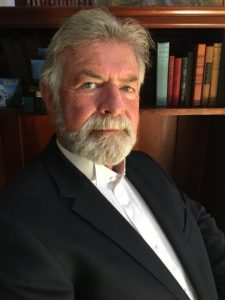 Jean Louis Debauche is a senior level Advanced Aerospace Engineer Consultant with more than 40 years experience working with the industry on the evolution of More Electric aircraft. His work has been specifically focused in the field of Actuation Control Systems including Space, Commercial and Military Aviation platforms. Mr. Debauche is an internationally recognized leader in the Advanced Aeronautic Industry. HIs vast experience and expertise also includes corporate business development and global strategies. Jean Louis designed Trajectory and Thrust Vector Control systems on the ESA Ariane 5 and VEGA launch vehicles. He has worked on numerous commercial flight critical Electrical Actuators including A320 and A380 (Electro Hydrostatic and Electro Mechanical Actuators). Jean Louis joined Microsemi in 2005 until 2018 as Chief Applications Engineer Aerospace and was the Lead Aviation System Engineer in the development of Power Core Modules for Actuation. Before joining Microsemi, Jean Louis was an Engineer for SNCB (société national des chemins de fer Belges), Development and technical manager for SABCA (BE) and Development Director for Serma Technologies (F).
Jean Louis Debauche is a senior level Advanced Aerospace Engineer Consultant with more than 40 years experience working with the industry on the evolution of More Electric aircraft. His work has been specifically focused in the field of Actuation Control Systems including Space, Commercial and Military Aviation platforms. Mr. Debauche is an internationally recognized leader in the Advanced Aeronautic Industry. HIs vast experience and expertise also includes corporate business development and global strategies. Jean Louis designed Trajectory and Thrust Vector Control systems on the ESA Ariane 5 and VEGA launch vehicles. He has worked on numerous commercial flight critical Electrical Actuators including A320 and A380 (Electro Hydrostatic and Electro Mechanical Actuators). Jean Louis joined Microsemi in 2005 until 2018 as Chief Applications Engineer Aerospace and was the Lead Aviation System Engineer in the development of Power Core Modules for Actuation. Before joining Microsemi, Jean Louis was an Engineer for SNCB (société national des chemins de fer Belges), Development and technical manager for SABCA (BE) and Development Director for Serma Technologies (F).
He is a certified Electrical Civil Engineer: Ecole Polytechnique Université de Louvain UCL (BE). Jean Louis has provided technical and strategic services as JLD Consultant for various European and US Aerospace Companies and continues to provide services for his former company SABCA (BE) as well as serving on the European Union’s Advanced Aviation Program as a technical review expert and Member expert of the SAE chapter 6 Actuation System.
“A Bright Era for Electrical in Aviation”
Dr. Hao Huang, Retired Technology Chief – GE Aviation Electrical Power
Date: April 23, 11:05-12:05 AM PDT (1805-1905 GMT)
Abstract:
Aviation is moving into a very special, bright era. The speaker will talk about the challenges and opportunities that Aviation has been facing, and the new roadmap necessary to overcome these challenges and to be ready and successful over this bright era. The speaker will then go through some key perspectives of aviation electrification, which include Electrical Engineering Technology perspective, Additive Manufacturing perspective, WBG perspective, advanced digital perspective, and Gg CO2 equivalent minimization perspective that electrical and electronics engineers need to be aware of, prepared for, and contribute to.
Bio:
 Dr. Hao Huang is the Retired Technology Chief of GE Aviation—Electrical Power since May of 2021. He was responsible for generating the technical directions, innovation strategies, and multi-generation product roadmaps for the GE aircraft electrical power division. He has been constantly leading and contributing innovations and inventions of aircraft electrical power technologies.
Dr. Hao Huang is the Retired Technology Chief of GE Aviation—Electrical Power since May of 2021. He was responsible for generating the technical directions, innovation strategies, and multi-generation product roadmaps for the GE aircraft electrical power division. He has been constantly leading and contributing innovations and inventions of aircraft electrical power technologies.
Dr. Huang is a NAE Member, IEEE fellow, and SAE fellow. He received his Ph.D. Degree in Electrical Engineering from the University of Colorado at Boulder, Boulder, Colorado, USA in 1987. He has 35 years of experience in Aircraft Electrical Power Systems, Power Generations, Engine Starting, Power Electronics and Controls, and Electric Vehicle Drives. He has had US 80 patents including pending and multiple technical publications in the above-mentioned areas. Dr. Hao Huang is the winner of 2019 IEEE Transportation Technologies Award.
“How Can We Decarbonize Commercial Aviation by 2050?”
Zia Abdullah, National Renewable Energy Laboratory
Date: April 23, 12:20-01:20 PM PDT (1920-2020 GMT)
Abstract:
U.S. airlines have set a goal to reduce carbon dioxide (CO2) emissions by 50% by 2050 compared to 2005 levels. Aircraft and engine manufacturers have improved efficiency by 130% compared to 1978 levels, however additional efficiency improvements in planes and engines are not likely to be sufficient. The current state of technology readiness for battery electric and hydrogen fueled aircraft is relatively low and is unlikely to be advanced and scaled up rapidly enough and sufficiently to meet 2050 decarbonization goals.
“Drop-In” Sustainable Aviation Fuels (SAF) which have low Carbon Intensity, and which can be safely used in place of conventional Jet-A fuel are the only option that airlines will have in the near-medium term to meet their 2050 decarbonization goals. One challenge for providing SAF is that the size of the jet fuel market is large and growing. US demand was 26 billion gallons in 2019 and is expected to reach 35 billion gallons by 2050. Another challenge is that the price of SAF today is higher than petroleum-based Jet A fuel. Fuel price is a hurdle because fuel is 20%–30% of the operating cost of an airline. SAF are required to be approved under the ASTM D4054 evaluation and qualification process before becoming an approved Annex in ASTM D7566 and be permitted for use in commercial aircraft.
This presentation will provide an overview of the biofuels research at the National Renewable Energy Laboratory, some novel SAF pathways that are under development, and opportunities to accelerate scaleup, approval and deployment of these fuel production pathways to meet the commercial aviation industry’s decarbonization goals.
Bio:
 As the Biomass Laboratory Program Manager, Zia Abdullah fosters NREL’s relationship with the U.S. Department of Energy’s Bioenergy Technologies Office (BETO) program. In addition, he works with senior lab management to set the strategic agenda for NREL’s biomass portfolio and with research staff to execute against the research strategy.
As the Biomass Laboratory Program Manager, Zia Abdullah fosters NREL’s relationship with the U.S. Department of Energy’s Bioenergy Technologies Office (BETO) program. In addition, he works with senior lab management to set the strategic agenda for NREL’s biomass portfolio and with research staff to execute against the research strategy.
He is a mechanical engineer with extensive experience and accomplishments in thermochemically and biochemically converting biomass to fuels and chemicals. His experience includes more than 25 years of research and development in biomass conversion, as well as problem-solving, new product development, business development, and project management.
Zia has won, managed, and led multiple large, competitive projects funded by government agencies. He also has developed close relationships with the U.S. Department of Energy (DOE) and BETO, as well as universities, industry, and other DOE laboratories.
He has received the B.A.Sc., Mechanical Engineering and Ph.D., Mechanical Engineering, both from the University of Ottawa and has a M.B.A., Technology Management, from University of Washington.
“Vehicle Management System Challenges in Emerging Air Mobility Aircraft”
Brian Barker, President and CEO, Hummingbird Aero, LLC
Date: April 23, 1:35 -2:35 PM PDT (2035-2135 GMT)
Abstract:
This talk will examine the role of the Vehicle Management System (VMS) in new eVTOL aircraft, the new roles and considerations in its design, and the challenges presented by cost, weight, complexity etc.
Bio:
 Brian Barker leads the Hummingbird Aero organization with more than 35 years of aerospace systems development experience.
Brian Barker leads the Hummingbird Aero organization with more than 35 years of aerospace systems development experience.
Previous to Hummingbird, Brian was employed with Moog Aircraft Group, and focused in the development of advanced fly-by-wire flight controls for military and commercial aircraft. Brian played an instrumental role in the development of early Electrohydrostatic actuation technology and demonstrators leading to their selection and development on the Lockheed Martin F-35 Joint Strike Fighter.
In 1998, Brian founded the hydraulic pump and motor product line for Moog dedicated to providing specialized hydraulic power components for internal actuation needs. These products have been used on flight control actuation systems for the F-18E/F, F-35 Joint Strike Fighter, Airbus A400M and A350 aircraft.
Brian started his career as a designer and developer of hydraulic pumps and motors for both Garrett Fluid Systems and Abex Aerospace, and developed hydraulic power transfer units for both the Airbus A320 and Boeing C-17 aircraft. Brian has served as an executive engineering leader for large engineering organizations at Goodrich Engine Controls and Northrop Grumman Inertial Navigation Systems, supporting the development of complex control systems per ARP 4754. He is experienced in the development of safety critical electronics and software per DO-178/254.
Since 2011, Brian has served as Chairman for the SAE A-6B2 International Panel for Electrohydrostatic Actuation. Brian holds three patents for hydraulic systems technology.
“Planet Positive 2030: Prioritizing Sustainability for Technology”
John C. Havens, IEEE Standards Association
Date: April 23, 2:45 -3:40 PM PDT (2145-2240 GMT)
Abstract:
Climate-related risks to health, livelihoods, food security, water supply, human security, and economic growth are projected to grow as the global mean surface temperature increases and reaches 1.5°C or higher above pre-industrial levels (1850-1900). Yet estimates of global emissions of nationally stated reduction goals under the Paris Agreement will lead to GHG emissions by 2030 that will not permit limiting global warming to 1.5°C by 2050 and beyond. We need responsible mitigation and adaptation measures to limit global warming and to adapt to the impact of the on-going changes to the climate, including the responsible transformation of society and infrastructure. IEEE’s new Planet Positive 2030 campaign, open for all to join, provides a forward thinking, multidiscipline process leading to a roadmap of measures for change and associated metrics with the goals to
- curtail global warming,
- help adapt to the impacts of the global warming already under way,
and, hence, to the well-being of people, animals, plant life (all life forms) for a healthy planet today, tomorrow and for the next seven generations and more.
Bio:
 John C. Havens is Lead of the Sustainability Practice of the IEEE Standards Association. Previously at IEEE SA John was Executive Director of The IEEE Global Initiative on Ethics of Autonomous and Intelligent Systems that had two primary outputs – the creation and iteration of a body of work known as Ethically Aligned Design: A Vision for Prioritizing Human Well-being with Autonomous and Intelligent Systems and the recommendation of ideas for Standards Projects focused on prioritizing ethical considerations in A/IS. Currently there are thirteen approved Standards Working Groups and four completed Standards in the IEEE P7000™ series. John was responsible for: the initial ideation, framing and execution for bringing together the more than seven hundred global thought leaders to create Ethically Aligned Design; was Founding Chair of IEEE 7000 and IEEE 7010 and helped launch more than a dozen other IEEE Standards Working Groups focused on AI, AI Ethics, AI Governance, and AI Procurement; and continues to work on staff at the IEEE Standards Association to help further design, proliferate, and standardize the concepts of human-centric, applied ethical, values-driven design for Responsible Innovation of all technologies.
John C. Havens is Lead of the Sustainability Practice of the IEEE Standards Association. Previously at IEEE SA John was Executive Director of The IEEE Global Initiative on Ethics of Autonomous and Intelligent Systems that had two primary outputs – the creation and iteration of a body of work known as Ethically Aligned Design: A Vision for Prioritizing Human Well-being with Autonomous and Intelligent Systems and the recommendation of ideas for Standards Projects focused on prioritizing ethical considerations in A/IS. Currently there are thirteen approved Standards Working Groups and four completed Standards in the IEEE P7000™ series. John was responsible for: the initial ideation, framing and execution for bringing together the more than seven hundred global thought leaders to create Ethically Aligned Design; was Founding Chair of IEEE 7000 and IEEE 7010 and helped launch more than a dozen other IEEE Standards Working Groups focused on AI, AI Ethics, AI Governance, and AI Procurement; and continues to work on staff at the IEEE Standards Association to help further design, proliferate, and standardize the concepts of human-centric, applied ethical, values-driven design for Responsible Innovation of all technologies.
Previously, John was an EVP of Social Media at PR Firm, Porter Novelli, led Business Development at BlogTalkRadio, and was a professional actor for over 15 years. John has written for Mashable and The Guardian and is author of the books, Heartificial Intelligence: Embracing Our Humanity To Maximize Machines and Hacking Happiness: Why Your Personal Data Counts and How Tracking it Can Change the World.
For more information, follow John on LinkedIn or @johnchavens on twitter. John currently has over ninety citations on Research Gate and dozens of articles for outlets such as The Guardian, Quartz, IEEE Spectrum and Mashable.
Panel Discussion
“Evolving Aviation Ecosystem”
Date: April 23, 8:10 – 9:40 AM PDT (1510-1640 GMT)
We are now seeing a fundamental paradigm shift in the way the aviation sector is embracing a net-zero emissions target by 2050, with a common understanding that it will take multiple stakeholders working together to make it possible. There is a coming together of industry stakeholders including airlines, airports, aircraft /engine manufacturers, fuel suppliers as well as government and regulators in declarations of commitment and partnerships to work together to reach the aggressive emission reduction target while the industry is forecasting passenger numbers and air traffic to double in the same timeframe.
While aviation has historically been quite successful in leveraging technology to reduce its contributions to climate change, clearly there is more to do. More recently, technological advancements in aircraft/engine design and manufacturing, alternative jet fuels, airport and air traffic management, and maintenance practices have sustainability as part of its core value proposition.
This panel of aviation experts will take a deep-dive into the challenges and opportunities within sustainable aviation including technology innovation, R&D collaborations, regulatory regimes, infrastructure and financing with the ultimate goal of achieving net-zero emissions.
Key Discussion Points:
-
-
- What will air transport in the future look like?
- Airframe and Propulsion Technology innovations – challenges and opportunities
- Challenges in ensuring sustainable Alternative Jet Fuel supply and ways to overcome them
- Airport infrastructure and services needed to build net-zero emission aviation ecosystems
- Evolving regulatory regimes to achieve sustainability targets
- Sustainability as a key enabler to aircraft technology innovations
-
Panelists:
Steve Csonka, Executive Director, CAAFI (Commercial Aviation Alternative Fuels Initiative)
Val Miftakhov, Founder & CEO of ZeroAvia
Melinda Pagliarello, Managing Director, Environmental Affairs at the Airports Council International – North America (ACI-NA)
Ms. Valentina Vecchio, Sustainability Policy& Partnerships Regional Lead, Europe – Boeing Corporation
Dan Wolf, Founder and Executive Board Chairman, Cape Air
Moderator:
Siobhan Dolan Clancy, Founder & CEO of SDC Business Consulting Ltd.
Bio:
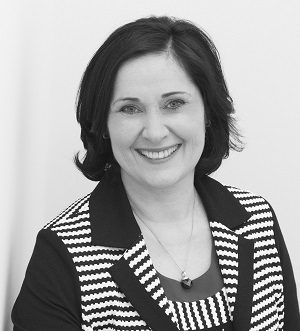 Siobhan Dolan Clancy is a senior business executive with 25 years’ leadership experience in the global semiconductor technology industry. She is Founder & CEO of SDC Business Consulting Ltd. and provides marketing, business development, thought leadership and expert advice on business and strategic transformation in the aerospace industry and its ecosystem globally. She is a member of the Midas Ireland Advisory Board and the Board Diversity Initiative. She is Chair of the Sustainable Aviation track of the IEEE SusTech 2022 conference and is working on projects to expand the sustainable aviation technology ecosystem in Ireland.
Siobhan Dolan Clancy is a senior business executive with 25 years’ leadership experience in the global semiconductor technology industry. She is Founder & CEO of SDC Business Consulting Ltd. and provides marketing, business development, thought leadership and expert advice on business and strategic transformation in the aerospace industry and its ecosystem globally. She is a member of the Midas Ireland Advisory Board and the Board Diversity Initiative. She is Chair of the Sustainable Aviation track of the IEEE SusTech 2022 conference and is working on projects to expand the sustainable aviation technology ecosystem in Ireland.
Prior to setting up SDC, Siobhan was the Senior Vice President and General Manager of the Discrete & Integrated Solutions Group at Microsemi Corporation (2016 – 2018). Before that she was Corporate Vice President of Worldwide Strategic Marketing & Business Development for Aerospace at Microsemi Corporation (2011 – 2016).
Panelists Bios:
 Steve Csonka is an ardent advocate for the aviation industry who seeks pragmatic solutions to the challenges of aviation growth. Built upon strong technical experience that spanned the breadth of the commercial aircraft/engine life-cycle, Steve’s capabilities and initiative have led to his various engagements in business development and long-term, strategic planning for the aviation enterprise over the past fifteen years. Such work has focused on the nexus of future product requirements, technology progression, and industry value propositions, including aspects of policy, advocacy, regulatory affairs, and environmental impact.
Steve Csonka is an ardent advocate for the aviation industry who seeks pragmatic solutions to the challenges of aviation growth. Built upon strong technical experience that spanned the breadth of the commercial aircraft/engine life-cycle, Steve’s capabilities and initiative have led to his various engagements in business development and long-term, strategic planning for the aviation enterprise over the past fifteen years. Such work has focused on the nexus of future product requirements, technology progression, and industry value propositions, including aspects of policy, advocacy, regulatory affairs, and environmental impact.
Steve’s overall industry engagement led to his current role as Executive Director of CAAFI (the Commercial Aviation Alternative Fuels Initiative, www.caafi.org) where he leads this Public-Private Partnership working toward the development and commercialization of sustainable alternative jet fuels (SAJF). He has been in this role since 2012, directing the CAAFI efforts of its 1200+ members and 500+ organizations who share the industry vision of enabling the decoupling of net carbon growth from expected sectoral growth. CAAFI engagement occurs through several work teams and public-private initiatives, and it seeks to be a force multiplier for a wide range of efforts required to achieve significant uptake of low net-carbon SAJF.
Steve is a commercial aviation professional with 35 years of broad, strategic airline and aviation OEM experience (GE Aircraft Engines, American Airlines, GE Aviation, and CAAFI). He holds BS and MS degrees in Aerospace Engineering. He has served in leadership, steering committee, and BOD roles with multiple aviation industry organizations (AIA, ICCAIA, IATA, GAMA, ICAO/CAEP, ATAG, Carbon War Room) in areas of technology and environmental progression. His CAAFI role has also led to appointments to advisory/leadership roles with the USDA/DOE BRDB TAC, the USDA/DOT/DOE/Industry Farm-to-Fly 2.0 initiative, USDA/NIFA/AFRI CAP projects, and study committee work of the National Research Council.
 Val Miftakhov is the Founder & CEO of ZeroAvia, a company developing a hydrogen-electric powertrain for aviation as the only scalable solution for tackling aviation’s growing climate change impact. Val is an avid helicopter and airplane pilot, and a serial sustainable transportation entrepreneur – his previous company eMotorWerks has developed the World’s leading platform for EV battery aggregation to provide grid services, and was acquired in 2017. Prior to that, Val held a number of senior business and product positions at Google and McKinsey & Company, and was a nuclear researcher at Stanford Linear Accelerator. Val holds a Ph.D. in Physics from Princeton University.
Val Miftakhov is the Founder & CEO of ZeroAvia, a company developing a hydrogen-electric powertrain for aviation as the only scalable solution for tackling aviation’s growing climate change impact. Val is an avid helicopter and airplane pilot, and a serial sustainable transportation entrepreneur – his previous company eMotorWerks has developed the World’s leading platform for EV battery aggregation to provide grid services, and was acquired in 2017. Prior to that, Val held a number of senior business and product positions at Google and McKinsey & Company, and was a nuclear researcher at Stanford Linear Accelerator. Val holds a Ph.D. in Physics from Princeton University.
 Melinda Pagliarello is Managing Director, Environmental Affairs at the Airports Council International – North America (ACI-NA). In her role, she has primary responsibility for ACI-NA’s activities in aviation environmental matters and sustainability. She coordinates members’ responses and represents airport interests on international and federal agency actions, programs, requirements, research and regulations affecting environmental matters for airports in North America. In her role as Environmental Affairs Committee Secretary, she works to facilitate member engagement and learning through her work overseeing nine active working groups, as well as ad hoc task groups.
Melinda Pagliarello is Managing Director, Environmental Affairs at the Airports Council International – North America (ACI-NA). In her role, she has primary responsibility for ACI-NA’s activities in aviation environmental matters and sustainability. She coordinates members’ responses and represents airport interests on international and federal agency actions, programs, requirements, research and regulations affecting environmental matters for airports in North America. In her role as Environmental Affairs Committee Secretary, she works to facilitate member engagement and learning through her work overseeing nine active working groups, as well as ad hoc task groups.
Using her varied background, Melinda works to incorporate knowledge from other disciplines, specifically airport capital development and funding, as well as Federal agency priorities, to enable environmental and sustainability initiatives at airports. Melinda is also responsible for a number of cross-cutting topics at ACI-NA, including leading the overall coordination of ACI-NA’s work on issues related to PFAS and airports. She is also leading efforts related to ESG and airports; airport climate change resiliency; and the airport role in Sustainable Aviation Fuels.
Specific areas of focus within Melinda’s portfolio also include airport noise; land use policies; air quality, including oversight of the Airport Carbon Accreditation program in North America; water quality; wildlife and natural resources management; and the range of environmental regulations, policies, and procedures that affect airports in the U.S. and Canada.
Melinda has nearly 20 years of experience in the airport industry. Prior to joining ACI-NA in 2017, she previously worked for Booz Allen Hamilton, LeighFisher, PBS&J, and Landrum & Brown. Her varied background includes work in strategic/ business planning, land use planning, financial feasibility studies, benefit-cost analyses, as well as environmental and master planning. She has worked with a range of clients at the federal (FAA and TSA) and state/local levels, from large hubs to general aviation airports.
She holds a bachelor’s degree in political science and Russian studies from Williams College in Williamstown, Massachusetts and a master’s degree in Transportation Policy from George Mason University in Fairfax, Virginia.
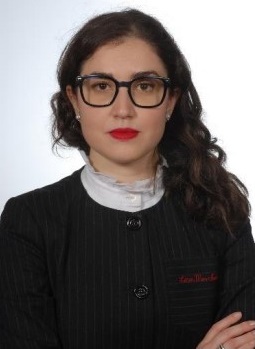 Valentina Vecchio is Boeing Global Sustainability Policy & Partnerships lead for strategic engagement & execution. In this role, Valentina integrates and maximizes the effectiveness of a global team in order to advance Boeing’s sustainable aerospace mission.
Valentina Vecchio is Boeing Global Sustainability Policy & Partnerships lead for strategic engagement & execution. In this role, Valentina integrates and maximizes the effectiveness of a global team in order to advance Boeing’s sustainable aerospace mission.
Valentina joined Boeing in September 2018 and was responsible for representing the enterprise’s interests with European institutions, most notably the European Commission, the European Parliament and the European Aviation Safety Agency. In January 2021, Valentina was appointed Boeing regional lead for sustainability and worked across the UK and the EU to manage an integrated sustainability strategy and advance regional business goals.
Since 2021, Valentina is also one of the Board Directors of the Round Table on Sustainable Biomaterials, a global forum to shape the development of renewable fuel sustainability standards.
Most recently, Valentina was a Legal Counsel at Aviapartner, managing customers’ contracts and claims.
Valentina is a lawyer by education: she obtained her LL.M. in International and European Union Law from the University of Trento (Italy) and she specialized in aviation law pursuing the Advanced LL.M. in Air & Space Law at Leiden University (The Netherlands). Valentina is the author of several publications in reputed aerospace law journals and received European and international prizes awarded by the European Air Law Association, Women in Aerospace Europe, and the International Institute of Space Law.
In her spare time, Valentina enjoys painting and learning Hindi.
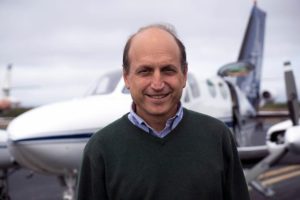 Dan Wolf founded Cape Air in 1989 and served as the company’s Chief Executive Officer from its founding through 2021. Dan continues to serve the company as the Chairman of the Board of Directors and stays current with his Air Transport Pilot license. In 2009, Cape Air was the first airline to adopt a strategic commitment to the environment and the airline was recognized for its sustainability achievements by the Environmental Protection Agency. Dan has grown the airline with a deep sense of social responsibility. He sees all electric aircraft as an opportunity to reduce the environmental footprint of his airline. He was the first commercial customer for Eviation Aircraft who manufacture the all-electric Alice aircraft which is expected to enter into service by 2024. Cape Air has also committed to the Tecnam P-VOLT which is an all-electric version of the Tecnam P2012 Traveller for which he was a launch customer.
Dan Wolf founded Cape Air in 1989 and served as the company’s Chief Executive Officer from its founding through 2021. Dan continues to serve the company as the Chairman of the Board of Directors and stays current with his Air Transport Pilot license. In 2009, Cape Air was the first airline to adopt a strategic commitment to the environment and the airline was recognized for its sustainability achievements by the Environmental Protection Agency. Dan has grown the airline with a deep sense of social responsibility. He sees all electric aircraft as an opportunity to reduce the environmental footprint of his airline. He was the first commercial customer for Eviation Aircraft who manufacture the all-electric Alice aircraft which is expected to enter into service by 2024. Cape Air has also committed to the Tecnam P-VOLT which is an all-electric version of the Tecnam P2012 Traveller for which he was a launch customer.
Dan’s secondary education was at Germantown Friends School in Philadelphia, Pennsylvania followed by a bachelor’s degree in Political Philosophy from Wesleyan University in Middletown, Connecticut. At the Quaker School of Aeronautics he received a degree in Airframe and Power Plant Maintenance. He has worked as a community and union organizer in the Boston area and managed the Chatham Municipal Airport, where he also worked as a flight instructor and aircraft mechanic.
Dan was elected in November 2010, 2012, and 2014, respectively, to represent Cape Cod and the Islands in the Massachusetts State Senate, where he served from 2011 through 2016. Each term, Dan was appointed as the Senate Chair of the Committee on Labor and Workforce Development, focusing on legislation around labor, workplace safety, and workplace development.
As a business and community leader, Dan has served on many of the region’s most important non-profit and civic organizations. He currently serves on the boards of Cape Cod Five Cents Savings Bank, the Center for Coastal Studies, and the Alliance for Business Leadership.
Dan resides with his wife, Heidi Schuetz, in Harwich, Massachusetts. He enjoys a morning bike ride daily and traveling to visit his three grown daughters.







